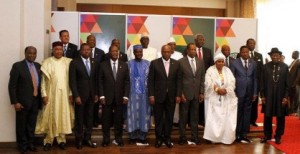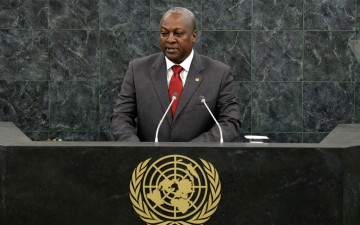 The Economic Justice Network of Ghana (EJN), a civil society organisation, has condemned the decision of West African leaders to approve the signing of the Economic Partnership Agreement (EPA) with the European Union.
The Economic Justice Network of Ghana (EJN), a civil society organisation, has condemned the decision of West African leaders to approve the signing of the Economic Partnership Agreement (EPA) with the European Union.
“This decision, taken at 45th Ordinary Session of the ECOWAS Authority of Heads of State and Government on July 10, in Accra, runs counter to the long standing views and positions expressed by several groups of stakeholders and ordinary citizens and corroborated by institutions of high repute such as the United Nations and the African Union.
A statement issued in Accra and copied to Ghana News Agency in Accra on Friday said, faith-based organisations, trade unions, farmer-based organisations, women groups and private sector players have repeatedly demonstrated over the years that the EPA are against the fundamental developmental needs and imperatives of the economies of West Africa.
It said judging by the terms and provisions in the text approved by the Heads of State, EPA would lead to the collapse of the domestic manufacturing and other productive sectors due to undue pressure from the subsidised goods from Europe and loss of revenue from trade taxes.
The agreement also commits the Sub-region to have developed, within six months of its adoption, a road map and modalities for an agenda of further liberalisation and deregulation of a whole range of areas – such as Services, Investment, Government Procurement, Intellectual Property and even other areas that have never been part of the EPA negotiating agenda, such as Capital Accounts, none of which are required by any international rule or obligation undertaken by the government.
The statement said the cumulative effect of all these would be to take away ability of West African governments to deploy the range of policy instruments that are critically needed for development in the Region.
“Furthermore the agreement subjects the dynamics of West Africa’s internal regional trade and development, as well as its relationship with the other regions of Africa and the South to the imperatives of its dealing with the European Union. It is sad for the West African leader to make mockery of our own regional integration agenda by this decision.
“All these negative consequences inflicted on West Africa are in return for a paltry aid promised by the European Union, as well as an attempt to save a few groups of exporters, when indeed credible alternatives exist which could have addressed the concerns and needs of all stakeholders.
“This agreement cannot be accepted by the ordinary men and women of this country who struggle daily in the midst of the precarious economic situation. Citizens should call upon their elected representatives in Parliament to demonstrate due leadership when this inimical agreement is presented to Parliament for ratification,” the statement said.





